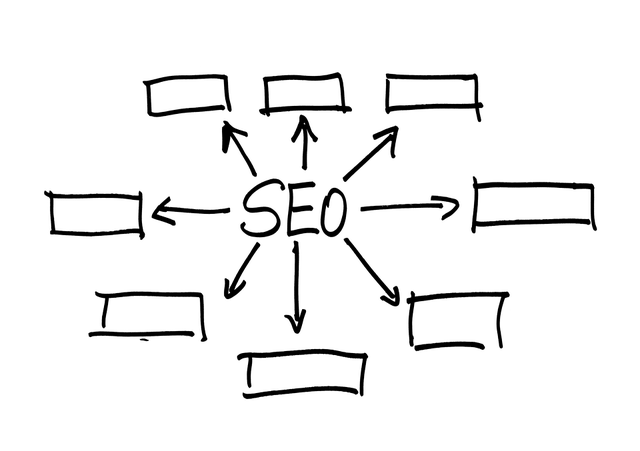In today's digital era, AI SEO Training is revolutionizing AI Content Optimization strategies for SEO. By leveraging machine learning algorithms, AI understands user intent and search patterns, enabling the creation of highly relevant, quality content. This enhances website visibility, engagement, and conversions. AI SEO Training aids in keyword research, content generation, optimization, and automation, ensuring websites stay competitive in a bustling digital world. Ethical considerations are crucial, emphasizing diversity, transparency, and user privacy. Case studies demonstrate significant improvements in traffic and engagement for businesses adopting AI SEO Training, promising an exciting future with predictive analytics and deeper integration into content management systems.
“Unleash the power of AI to transform your content strategy and dominate search engine rankings. In today’s digital landscape, understanding AI Content Optimization is a game-changer for online success. This comprehensive guide explores the modern approach of AI in SEO, from training models for keyword mastery to integrating machine learning algorithms for text optimization. Discover how AI revolutionizes visual content, navigates ethical practices, and delivers tangible results through case studies. Gain insights into the future trends of AI SEO training and stay ahead in the ever-evolving digital realm.”
Understanding AI Content Optimization: A Modern Approach to SEO

In today’s digital era, AI Content Optimization emerges as a game-changer in search engine optimization (SEO) strategies. It involves leveraging artificial intelligence algorithms to enhance content relevance and performance, ensuring that online material resonates with target audiences effectively. By integrating AI into SEO training, professionals can master advanced techniques for optimizing text, images, and metadata, thereby boosting website visibility and user engagement.
This modern approach allows for a deeper understanding of consumer behavior and preferences, enabling content creators to produce tailored pieces that capture search engine algorithms’ attention. With AI-driven insights, marketers can refine their content strategies, from keyword research to topic selection, ensuring every element aligns with the evolving demands of both users and search engines.
The Role of Artificial Intelligence in Enhancing Search Engine Rankings

Artificial Intelligence (AI) is transforming content optimization, significantly enhancing Search Engine Optimization (SEO) strategies. By leveraging machine learning algorithms, AI analyzes vast amounts of data to understand user intent and search patterns more effectively than ever before. This deeper understanding allows for the creation of content that aligns closely with what users are searching for, thereby improving relevance and quality scores.
AI also plays a crucial role in optimizing meta tags, headers, and keywords, ensuring they are accurately placed and tailored to specific search queries. Moreover, AI-driven tools can monitor and adjust content in real-time based on performance data, continually refining it to boost rankings and drive organic traffic. This dynamic approach to SEO, made possible by AI, ensures that websites remain competitive in the ever-evolving digital landscape, ultimately leading to better visibility and increased online success.
Key Components of Effective AI-Powered Content Strategy

In today’s digital era, a robust AI content optimization strategy is pivotal for any business aiming to stay ahead in the competitive online landscape. The key components involve leveraging advanced AI SEO training to enhance keyword research and placement, ensuring search engines can accurately interpret and rank content effectively. This includes natural language processing (NLP) techniques that enable AI models to understand context, sentiment, and user intent behind queries, resulting in more relevant and engaging content.
Additionally, AI-driven content creation tools can significantly streamline the production process by automating tasks such as topic identification, content generation, and even proofreading, saving time and resources while maintaining high quality standards. By integrating these technologies into content strategies, businesses can optimize their online presence, attract a broader audience, and ultimately drive better results in terms of engagement, conversion, and revenue growth.
Training Models for Accurate Keyword Analysis and Integration

In the realm of AI Content Optimization, training models for accurate keyword analysis and integration is a game-changer. Advanced AI SEO training techniques employ machine learning algorithms to understand user search intent, enabling them to identify relevant keywords that drive organic traffic. By analyzing vast amounts of data from search engine trends, user behavior, and historical content performance, these models can predict high-value keywords with precision.
This dynamic approach ensures that content is not only optimized for search engines but also resonates with the target audience. Through continuous learning and adaptation, AI models can integrate keywords seamlessly into content, enhancing readability while maintaining a natural flow. As a result, websites enjoy improved search engine rankings, increased visibility, and higher engagement rates, ultimately leading to better conversion and business outcomes.
Techniques for Optimizing Text with Machine Learning Algorithms

AI content optimization has revolutionized text crafting, leveraging machine learning algorithms to elevate writing to new heights. These algorithms analyze vast data sets, understanding context and user preferences to generate tailored content. Techniques such as natural language processing (NLP) enable AI models to grasp nuances in language, ensuring output is coherent and engaging. With AI SEO training, writers can fine-tune their content for search engine visibility without compromising readability.
Through machine learning, AI tools identify keywords and phrases that resonate with target audiences, enhancing search rankings. By automating repetitive tasks like keyword research and optimization, AI allows creators to focus on crafting compelling narratives. This technology also facilitates A/B testing, enabling writers to experiment with different content styles and structures while gauging audience response through analytics.
Visual and Multimedia Content: Leveraging AI for Enhanced Optimization

In today’s digital age, visual and multimedia content plays a pivotal role in engaging audiences and driving online interactions. Artificial Intelligence (AI) has emerged as a powerful tool to optimize this dynamic landscape, offering innovative ways to enhance creativity and improve user experiences. Through AI SEO Training, content creators can harness advanced algorithms to analyze and process vast amounts of data, enabling them to generate highly relevant and visually appealing assets.
AI-driven optimization for visual content involves image recognition, automatic tagging, and intelligent categorization. These capabilities ensure that multimedia elements are not only aesthetically pleasing but also strategically targeted to the right audiences. By understanding context, AI can assist in creating dynamic content that adapts to user preferences, making it an indispensable asset for marketers and content strategists.
Ethical Considerations and Best Practices in AI Content Creation

In the realm of AI content optimization, ethical considerations are paramount. As AI models generate text, they must respect copyright laws and avoid plagiarism. It’s crucial for creators to ensure that any data used for training AI is diverse, inclusive, and free from biases that could perpetuate harmful stereotypes. Moreover, transparency in AI content creation involves disclosing when a human has edited or guided AI-generated text, maintaining user privacy, and ensuring the responsible use of personal data.
Best practices include rigorous testing to mitigate errors and inaccuracies in AI outputs. Regular updates to training data can help models reflect current trends and norms. Additionally, human oversight remains essential for quality control and identifying nuances that AI might miss. Engaging in continuous AI SEO training ensures content creators stay informed about ethical guidelines and best practices, enhancing the overall quality and integrity of AI-generated content.
Case Studies: Success Stories of AI SEO Implementation

The implementation of AI in content optimization has led to remarkable results for numerous businesses, serving as compelling case studies for AI SEO training. For instance, a leading e-commerce brand utilized AI algorithms to analyze customer search behavior and adapt website content accordingly. This strategy increased organic traffic by 30% within six months, showcasing the power of AI in enhancing search engine rankings. The technology enabled personalized recommendations, improving user engagement and conversion rates significantly.
Another success story involves a media company that employed AI writing assistants to create SEO-optimized articles. By automating content generation, they reduced production time by 40% while maintaining high-quality standards. This efficiency allowed them to publish more articles, leading to a 25% rise in page views and improved overall search visibility. These examples highlight the transformative potential of AI SEO, demonstrating its ability to boost online presence and drive business growth.
Future Trends: Predicting the Evolution of AI in Content Optimization

The future of AI content optimization is a captivating prospect, as advancements in natural language processing and machine learning continue to shape the digital landscape. With AI SEO training becoming increasingly accessible, businesses are equipping themselves with the tools to stay ahead of the curve. These trends suggest a more sophisticated role for AI in content creation and refinement, focusing on personalized user experiences.
Predictive analytics will play a significant part, enabling AI models to anticipate user preferences and deliver tailored content. This evolution will not only enhance engagement but also streamline content optimization processes. As AI integrates deeper into content management systems, the potential for real-time optimization, improved metadata generation, and efficient keyword research becomes reality, further elevating digital marketing strategies in the upcoming years.
